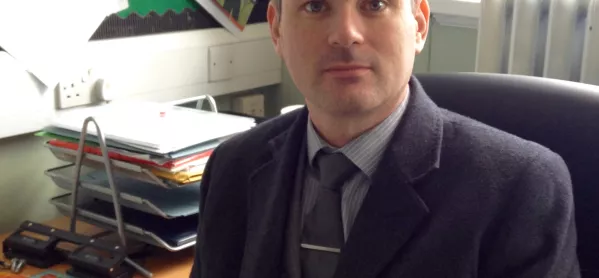When people ask me about provision for speech and language therapy in schools, I think about children like Sam.
Sam has been diagnosed with an autistic spectrum disorder. Social communication is difficult for him, but because we don’t have the funds to support him properly, he is effectively denied access to the provision he needs.
In Sam’s review meeting, we had to fall back on hoping that a teaching assistant would be able to provide complex support with limited external input. I have sat in numerous unsatisfactory review meetings like this and have become increasingly frustrated.
The NHS provides the speech input for our school, but it does not do enough for children like Sam - or Sophie, who struggles with unclear speech. It was heartbreaking watching Sophie make progress but then not maintain it when her support was withdrawn. Even worse was trying to explain to her parents, who don’t understand the system, why she still has difficulty after the support has suddenly disappeared.
Gaps in provision
I feel the NHS should do more at an early stage and then continue to offer support for longer. Although we have patched over the gaps in provision as best we can, we have only added an extra layer of “learning filler”.
I feel that I have failed Sophie and Sam. The ability to speak and communicate in a digital, global world is perhaps the one most important skill that all our children need.
I know that the NHS is rationalised based on who has the greatest need and that its workload covers everything from early speech to communication disorders; young children to geriatric care. I understand that the shortfall is not its fault. I have now started to think less about who is to blame for the problem and more about what I can do to fix it.
So I have decided to start a grassroots movement to get every school to consider employing their own speech and language therapist.
A speech and language revolution
This sounds like a giant undertaking and I am not sure if there is currently enough capacity within the system to provide for the demand. Personally, I think this offers a great opportunity for schools to work together. Rather than each school employing one person full-time, there is the option for schools to club together and share a therapist, dividing their time up depending on school size and the needs of the pupils and staff.
Either way, the investment will make a real difference to pupils like Sam and Sophie. So often an intervention stops when we get to a place called “OK”. We would never apply this same logic to performance coaching for athletes. Their training is not just about getting them to a point where they are able to compete, but about helping them to become the very best that they can be.
This is what we should be aiming for with school intervention. And where better to start than with a speech and language revolution?
Jeremy Thompson is a headteacher of an urban primary school in South Wales
Want to keep up with the latest education news and opinion? Follow TES on Twitter and like TES on Facebook




